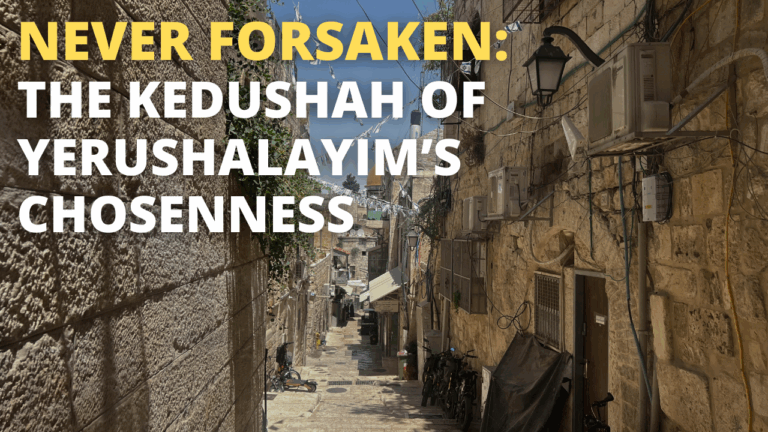Citadel of Integrity
“From a matter of falsehood you shall distance yourself, מדבר שקר תרחק” (Shemot 23:7). This entire section of Parshat Mishpatim constantly emphasizes the need to maintain absolute integrity in judgement. False testimony must be avoided at all costs. A judge must be exceedingly careful to offer righteous and fair verdicts.
The verse of מדבר שקר תרחק is used by Chazal to derive many halachot. The Gemara Shevuot (30b) associates over ten examples of dishonest behavior that the Torah is warning us to avoid. One derivation teaches us that it is prohibited to serve as a judge or witness alongside someone who is a thief or dishonest. The Gemara Sanhedrin (23a) explains that this is the reason why we allow two judges to verify the third judge that will preside over the case with them.
The Gemara then notes the practice of the נקיי הדעת שבירושלים (literally, those of clean thought), the scrupulous people of Jerusalem. These righteous individuals were exceedingly careful to never mingle in judgement or testimony with those who were unscrupulous. This Gemara initially seems strange. The title “נקיי הדעת” implies an extreme level of integrity that surpasses the common standards of society. But it sounds as if the Scrupulous People of Jerusalem were simply fulfilling the mitzvah that is incumbent upon everyone in Klal Yisrael. What makes them so special?
The Rambam’s codification ofthis halacha (Hilchot Sanhedrin 22:10)reveals the answer to this question. The Rambam relays that it is only prohibited to adjudicate a case alongside a judge who one knows to be a thief. Hence, one only transgresses the mitzvah of מדבר שקר תרחק when he is aware of the dishonesty of his colleague. However, the נקיי הדעת transcended this level, opting to investigate all parties involved in their testimony and judgements to ensure that they never came near falsehood. (See Aruch HaShulchan, Choshen Mishpat 3:7 and other commentaries to the Tur for a more complete discussion of the Rambam’s position.)
These tzaddikim were not simply clean from sin and dishonesty. The language of נקי, cleanliness and purity, connotes a fine sensitivity for truth and holiness (see Mesilat Yesharim chapter 10). Their elevated standard of conduct was a natural extension of a deep sense of morality that penetrated past the letter of the law. For them, it was not enough to avoid deliberate engagement with falsehood; the Torah’s exhortation of תרחק made falsehood appear as a dangerous and noxious poison. When one acutely feels the toxic stench of שקר, there is no such thing as excessive distance.
This higher standard of integrity established by the sages of Jerusalem is incumbent upon all Torah scholars. The Rambam (Sanhedrin 2:14) explains that it is prohibited for anyone who is deemed a חכם to settle for the lower standards expected of the general populace. Jerusalem’s elevated conduct sets the bar for all those who seek wisdom.
It is not a coincidence that the נקיי הדעת hailed from Yerushalayim Ir HaKodesh. First, as the Neshama of Eretz Yisrael, Jerusalem demands a higher level of conduct that transcends the normal expectations of mortal society. As David HaMelech writes (Tehillim 24:3-4), “Who will ascend upon the Lord’s mountain and who will stand in His Holy place? He who has clean hands and a pure heart…” The Scrupulous Ones were sensitive to this spiritual obligation and responded in kind. But more importantly, Jerusalem’s rarefied and holy air inculcates a higher degree of purity and virtue. For those who are worthy, life in Jerusalem facilitates נקיות and קדושה.



